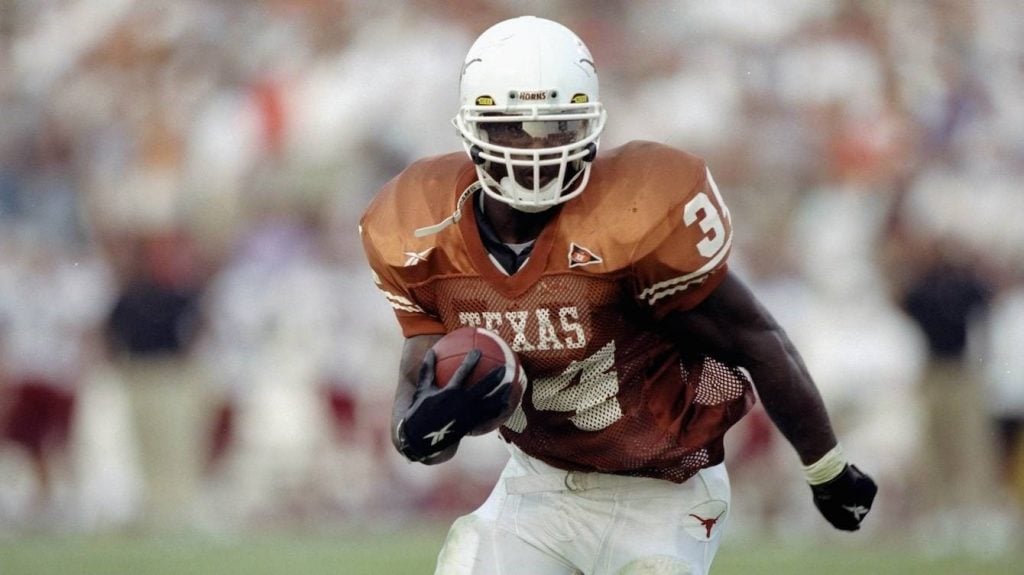
Looking Back At Ricky Williams’ Record-Setting Performance

This week in 1998, Texas running back Ricky Williams took command of the Heisman Trophy race with a record-breaking performance.
It was on Oct. 3 that year when Williams broke or tied multiple records in front of a home crowd in Austin with a 350-yard, five-touchdown performance in the Longhorns 54-33 win over Iowa State.
Williams started the season squarely on the Heisman radar following his fifth-place finish in the 1997 balloting. His 1998 season got off to a strong start with 215 yards and six rushing TDs in the opener and 160 yards rushing and 54 receiving yards at No. 8 UCLA in Los Angeles.
But his campaign hit a speed bump in the form of No. 10 Kansas State, which clobbered Texas, 48-7, and held Williams to a mere 43 yards rushing on 25 attempts.
A week later, however, Williams unleashed a 318-yard, six-TD effort in a romp over Rice that included four receptions for 32 yards.
That set the plate for his Oct. 3 performance against Iowa State, when Williams carried the ball 37 times for 350 yards, averaging 9.5 yards per carry while rushing for five scores.
The 350 yards broke Texas’ 25-year-old single-game rushing mark of 342 held by Roosevelt Leaks set against SMU and the five rushing TDs gave him 65 for his career, passing Indiana’s Anthony Thompson’s 64 (Williams would tack on seven more that season).
He also set NCAA records for scoring among non-kickers and rushing yards in consecutive games (668, Rice and Iowa State) and tied the NCAA marks for fastest to 1,000 rushing yards in a season (five games) and TDs in consecutive games (11).
Williams became the nation’s leading rusher that day with 1,086 yards thanks to his ninth career 200-yard rushing effort, just more than halfway to his final regular-season total of 2,124 yards.
Also noteworthy that day
Williams was the reigning Doak Walker Award winner — an honor he would also win in 1998 — and the trophy’s namesake and 1948 Heisman Trophy winner out of SMU had died the day after the Rice game.
Before the game against Iowa State, Williams —who had gotten to know Walker after winning the award a season earlier — placed a No. 37 decal on his helmet to honor Walker while he dedicated the rest of the season to his memory.
And with that memory in mind, he won the Heisman Trophy some two months later.




